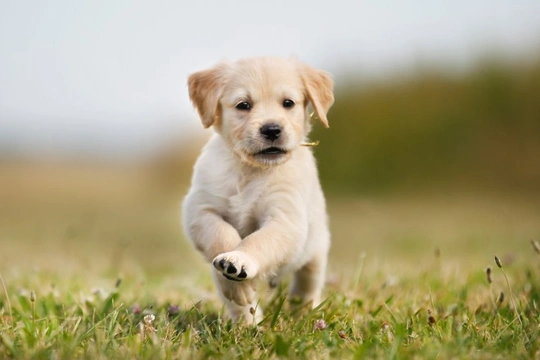
Five breeds of dog that can live happily with cats
While dogs are hugely popular as pets, cats still outrank dogs by a touch as the most commonly owned pet in the UK, and of course, many people own both a cat and a dog, enjoying the best of both worlds! However, getting a dog to join your cat or bringing a cat into a home with an existing dog can be challenging, as many dogs view cats as potential prey, a toy or even a threat, and cats do not take well to the unknown, often taking a good while to relax around dogs, and stop treating them as a threat or a challenge.
Part of the battle when it comes to getting dogs used to and accepting of cats can be won early, if the dog is introduced to cats while they are young, properly socialised with them, and taught how to behave around the cat, and often, getting a new puppy and a kitten at around the same time can help with this. Theoretically, any dog should be able to be trained and conditioned to get on with cats in their own home, and even among the breeds with the strongest of prey drives, it is by no means impossible to introduce any breed of dog to a cat and ultimately, see them living in harmony.
That being said, some breeds are definitely more challenging to socialise with a cat than others, while some breeds of dog tend to take to cats with ease, even if they are not introduced to cats until they are adult or mature. How you handle the introductions and subsequent encounters is vital too, but if you want a head start, check out our picks of five of the best breeds that will usually accept and live happily alongside of a cat.
Golden retriever
The golden retriever is a large, handsome and very loving breed of dog that is widely reputed to be sociable and friendly with people and other dogs of all types, and also kind and gentle enough to get on well with cats, despite their large size! Golden retrievers tend to be very active and playful, but they are also undeniably big softies that are excellent at moderating their behaviour to avoid causing harm to smaller dogs and children, and as such, are likely to be highly tolerant of a cat, and often, form strong bonds with the cats in the home.
Boxer
The boxer dog is a soulful, loving medium sized dog that can be slightly shy on occasion, but is also very playful, loving and forms strong bonds with their families. The boxer is one breed of dog that is slightly wary of the unknown and new experiences, but they are also very biddable and pleasant to handle, and will soon bond with a cat that will share a space on the sofa with them.
Pug
The small, comical pug is one of the true comedians of the canine world, and it is also often said that the pug has a rather cat-like personality, making them appealing to people who like cats as well! While the pug loves clowning around, they also love their home comforts, such as a warm lap, cosy blanket, and someone to share it with. Pugs very much benefit from having company, and a cat can help to provide this, and pugs and cats often bond strongly and love to share their beds with each other!
Bichon Frise
The small, fluffy white Bichon Frise is one of the most popular toy dog or lapdog breeds, and one that is keen to have constant companionship and company. While they do tend to be very playful and inquisitive about new things, and will likely view a cat as a potential playmate, assuming that the cat and the dog are introduced properly and that the dog knows the rules, cats and Bichons are one of the most common pairings in multi-pet households, and generally get on very well with each other too.
Kromfohrlander
The Kromfohrlander is rather less common than any of the other breeds on our list, being as they are a relatively modern breed that has only just gained formal recognition in their home country of Germany.
The Kromfohrlander is distinct from most other breeds of dog as they are noted to have a very low to non-existent prey drive, meaning that they show very little interest in pursuing prey outside of the home. This in turn means that they are very open to accepting the presence of smaller pets such as cats, and will soon get used to the concept of having one in their home. However, the cat may take a little longer to warm up to the dog, if they have not spent time in the presence of a dog before!
As always, every single dog and cat should be treated as individuals on a case-by-case basis, and regardless of the breed, introductions and subsequent interactions between a cat and a dog should be carefully managed to keep both parties safe while they get used to each other.



